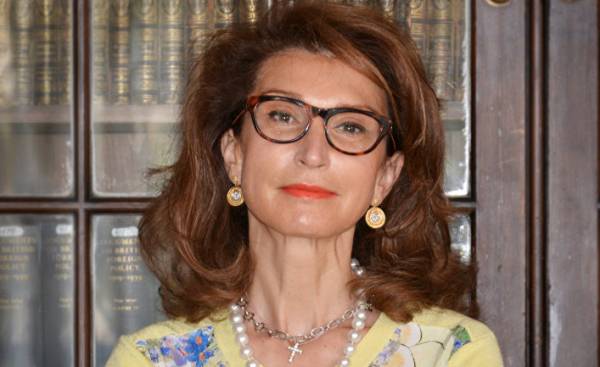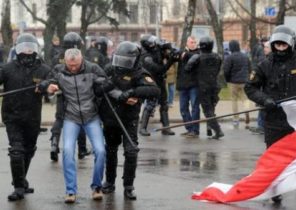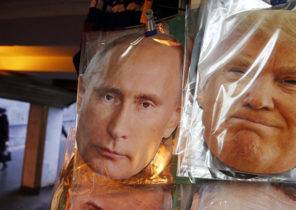
Today in London the most talked about political figure of the current leadership of the UK, in fact, the transitional government, oddly enough, the current Minister of foreign Affairs, Boris Johnson.
As he writes in a recent issue of the publication the Economist, the most important week Boris Johnson as foreign Minister, began, according to British experts, bad and continued worse. As the authors write, the Kremlin called it a “poodle of America” (although, for the sake of objectivity it is worth Recalling that it made Tim’s farron (Tim Farron), the current leader of the liberal Democrats in Parliament), when Boris Johnson at the last moment decided to cancel the visit to Russia, as suggested by the instructions of the Secretary of state Rex Tillerson. He recently appointed the head of foreign policy Department of the USA, visited Russia almost immediately after the announcement of the London decisions.
Johnson tried to kick in the briefing for the British press, where he said that, just the same, he, Boris Johnson, has discussed its views with the “all powerful players” and personally made the final decision. The British Minister demanded, then from the West to take “strong punitive sanctions” against the Syrian regime and its accomplices. The authors remind us that the group of seven meeting, held in the Italian city of Lucca (Lucca), the British Minister presented his plans for new sanctions against Russia, which, however, was met with a very cool. Moreover, to the dismay of Boris Johnson, in the final communiqué of the group of Seven, the issue of sanctions is not mentioned at all.
Says the London political establishment, Boris Johnson, having cancelled his trip to Russia, the first visit of Minister of foreign Affairs of great Britain for five years was right. According to them, after a chemical attack in Syria is important to the West to talk to Russia with one voice, the tone of which, according to the British should ask the Americans. The experts indicate that his reaction was just a child, and the Minister should never have to publicly brag about their plans on new sanctions without discussing this agenda with his colleagues in the “Big seven”. As the Economist writes, the result of this narrow-minded diplomatic policy was the humiliation of Britain and divided the “Big seven”. And British experts verdict: the problem of the foreign Minister is not that he is a poodle: as a rule, poodles are loyal animals and trustworthy. The problem is that he is unorganized and a narcissist.
Many in Britain, according to the Economist, believe that the appointment of Johnson Minister of foreign Affairs — was a very strange decision. It is far from diplomacy, and journalism as a career is built on the entertainment of readers of the daily Telegraph (Daily Telegraph) stories about the horrible foreigners, in particular, the Brussels bureaucrats and their obsession “degree of curvature of bananas” (the Economist somehow didn’t remember that Johnson was a successful and popular mayor of the capital of great Britain). In London it is widely believed that he received this post in order to retain control of the traditional English estates of the tories, and not to affect the global capital. And, they say, the real work of Boris Johnson is to “sell” the possible Brakcet conservative Tory MPs in the House of Commons and employees of their apparatus on the ground.
British experts, however, have to state: the Minister of foreign Affairs of the country, is the embodiment of what happens to the foreign policy of great Britain. The British have to admit that today the country’s foreign policy is chaotic, unbalanced and sharpened by a domestic agenda. Experts disappointedly noted that the current Ministry of foreign Affairs of great Britain is only a shadow of the glory that Periago vneshnepoliticheskogo Ministry of the country when it ruled a quarter of the population of the world from his magnificent Palace opposite Downing street. The appearance of Boris Johnson accompanied by brutal dismemberment of the competences of the Ministry of foreign Affairs of great Britain, as well as the appointment of two associates of Johnson “Brestovsko camp” — Liam Foxat (Liam Fox) and David Davis (David Davis), who are responsible for two new departments: international trade and the exit from the EU.
In the article Economist remember that, for example, Margaret Thatcher, when he was Prime Minister, just hated the Ministry of foreign Affairs. It is believed that it is full of “eunuchs” of the upper light, which are admired by foreigners. Another former Prime Minister of great Britain Tony Blair (Tony Blair) didn’t like the foreign Office (Foreign Office), because he believed that it filled a narrow-minded imperialists, who were not understand multicultural Britain. The Ministry has lost the war for spheres of influence, and as a result, one of the most influential and powerful in the recent past, offices in the UK, got only his empty shell. But at the same time, Downing Street (Dauning Street), of course, the subjugation of the most serious and important foreign policy direction. And the then Prime Minister Tony Blair is almost completely controlled policy towards Iraq, and the so-called “war on terrorism” on a global scale. In parallel, following the course of the Prime Minister, and the Ministry of Finance has gone the way of cuts in the budget of the Ministry and beginning to Annex the most interesting and attractive pieces. For example, the position of Ambassador to the UK in the EU was a long-time sir Ivan Rogers (Sir Ivan Rogers, the recently resigned because of disagreement with PACSICOM), which was never in the diplomatic service, and was a career employee of the Ministry of Finance. The Ministry of international development (Department for International Development “DfID”), which was formed only in 1997, as notice of the British experts, turned into a monster, and naturally completely eclipsed by his aristocratic half-brother, because this Department has no problems with money: 0.7% of GDP of the country at his disposal. Meanwhile, the Ministry of foreign Affairs must reduce or even close their embassies.
British experts are concerned about this situation, and believe that the present policy of the foreign Office, as a peripheral departments erroneous on all sides. Analysts notice that it had been the practice when the Prime Ministers consider foreign policy through the lens of domestic. David Cameron (David Cameron), for example, saw foreign policy through the prism of ridding the tories of their image as “hated party”; Teresa Mei (Theresa May) sees it through the experience of his former work in the Ministry of internal Affairs. And so on… in fact, Prime Ministers are “tourists” foreign policy, which focus on the major powers and story events, but ignoring the hard work in establishing relations with foreign leaders of different levels — both small and large, noted with bitterness Analytics.
Anxiety and real concern of British experts is the obvious fact that today, they say, the UK has no foreign policy. They remind us that for decades, if not centuries, Russia’s foreign policy lay in the fact that the UK, in fact, was a “bridge” between Europe and the United States, developed their global connections, being a former Imperial power. In June last year, 52% of British voters decided, according to experts, to undermine the bridge half that did all the design is quite meaningless. In the opinion of analysts, today’s foreign policy of Britain is that as close as possible to approach the constantly changing views of the American President, while negotiating a divorce with the EU. In the short term, this will require the ability to perform ideological somersaults in the interests of America, who will look through the “divorce” process with the EU. Boris Johnson, according to expert Economist, well suited for that, and for another. In the longer term, this involves redefining the international role of the UK and strengthening its position everywhere in the world. Analysts agree that this work requires renewed and confident of the Ministry of foreign Affairs.
While the British experts saw some positive signals and some signs of recovery. The foreign Office had replaced sir Ivan as Ambassador to the EU one of their own veterans — Tim barrow (Tim Barrow), and young diplomats are significantly configured to rethink foreign policy of great Britain in the new world. Experts notice that today is not to stupid jokes on the theme of “poodle,” the foreign Minister needs to think about something else. And if he wants to confound his critics and take their place in the history books, and not just the headlines, he needs to play big: to revive a great institution which was unnecessarily humiliated by its political reverse. And to give him the space to build a new foreign policy for the wreckage of Breccia.
Note, the Economist as-that is silent and does not affect the subject obviously failed policy of great Britain under the conservatives in the Russian direction. The failure of even basic dialogue and working relationships, not to mention such “high” diplomatic concepts as cooperation, of course, demonstrates the weakness of the foreign policy of great Britain. Moreover, it demonstrates the loss of the UK diplomatic tools of influence on the events in the world through a key player. Well, today is a new British realities.







